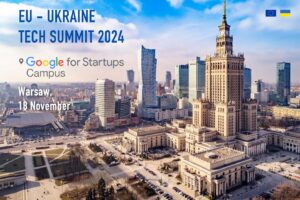It’s no secret that you can make big money on collective emotions, but even hard and passive hearts could crumble at the sight of Salah’s serious injury, the personal defeat of Liverpool’s goalkeeper and the historic success of Real Madrid. Gazprom, who accompanies over a billion people at lofty times every year, understands that perfectly – writes Michał Perzyński, editor of BiznesAlert.pl.
Soft power
Football is the most popular sport in the world, and 2018 is special in this respect – after Saturday’s meeting at the top of the Champions League, time will come for the World Cup, the finals of which will be the real apogee of sports holidays. The essence of football comes from the fact that it is intentionally inclusive and tolerant – no matter who they are and where they come from, players play fair according to the same rules, and the fans share a sense of community and belonging. Adding to this a lot of spontaneous experiences, it is a guarantee of a spectacle with which millions will be identified. That is why Gazprom wants its logo to hang in the background of successes and failures.
Soft power consists in developing country’s own attractiveness through self-promotion or building a positive image . Respect and sometimes even a kind of admiration of other interlocutors at the political level really helps in finding support for their positions. The United States, which (at least until recently) was considered a mainstay of freedom and democracy has already done this. Poland was also successfully doing it, as its success in transformation has been appreciated in the West. Therefore, this direction of Gazprom’s activities is basically justified. It is the largest and most recognizable Russian company, a showpiece of Russia.
Through football to the heart
Engagement of the Russian gas giant in football sponsoring is impressive. The company has signed agreements with the largest club in Serbia, Red Star Belgrade, a current vice-champion of Germany Schalke 04, and Zenit St. Petersburg (the home town of Gazprom’s CEO Alexei Miller and Vladimir Putin). Gazprom is one of the main sponsors of the Champions League (about 1,8 billion viewers per year) and the World Cup, the largest football event in the world that gathers a total of 3,5 billion people in front of TV sets. By sponsoring such important and exciting games, Gazprom wants to redirect some of the joyful emotions on itself, significantly improving its reputation among viewers.
And it is the reputation that Russia and Gazprom have the biggest problem with at the moment. Unlawful interference in elections in other countries or hybrid aggression towards Ukraine are just the last spots on Russian credibility in talks with the European Union and NATO. Nor does the president Vladimir Putin help by building the system of power not on transparency and fair competition, but on the network of mutual interests of his group of partners, and that in the internal political struggle, journalists who are critical of him often disappear under unclear circumstances. The Champions League and the world cup are designed to warm the face of the regime.
Light in the tunnel
Both expensive and effective image policy of Gazprom and Russia is understandable. It also seems that choosing a partner is not a coincidence – UEFA and FIFA are also seen as extremely dishonest, ruthless and greedy, and corruption scandals involving members of their boards break out regularly. What’s fascinating, it will not affect the viewership of the World Cup, which, after all, will be just as electrifying. One can only take comfort in the thought that since the World Cup and the Champions League are sponsored by the Russians, at least they will not fall victim to the attack of Russian hackers.








